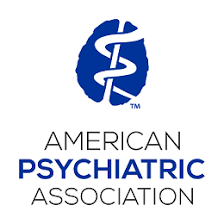Mental Health Conditions and the Family Medical Leave Act
 Did you know that The Family Medical Leave Act (FMLA) provides job-protected leave to address mental health conditions? Learn more about eligibility and qualifying conditions in this fact sheet from the U.S. Department of Labor. Read more ›
Did you know that The Family Medical Leave Act (FMLA) provides job-protected leave to address mental health conditions? Learn more about eligibility and qualifying conditions in this fact sheet from the U.S. Department of Labor. Read more ›


 Dialectical Behavior Therapy (DBT) focuses on teaching people strategies to help them live their best and most productive life. DBT is often used to help people with depression, anxiety, borderline personality disorders, addictions, eating disorder, and PTSD.
Dialectical Behavior Therapy (DBT) focuses on teaching people strategies to help them live their best and most productive life. DBT is often used to help people with depression, anxiety, borderline personality disorders, addictions, eating disorder, and PTSD. 
 When we try to grasp for “a false sense of control” or fight against situations/emotions that we cannot change, this often leads to suffering. While there are certainly situations or circumstances in life that are within our control, often there are times when we simply are unable to change the reality of a situation.
When we try to grasp for “a false sense of control” or fight against situations/emotions that we cannot change, this often leads to suffering. While there are certainly situations or circumstances in life that are within our control, often there are times when we simply are unable to change the reality of a situation. 
 Everyone worries or feels nervous from time to time. Anxiety is a normal human reaction to stressful situations. But for people with anxiety disorders, those fears and worries aren’t temporary. Their anxiety persists, and can even get worse over time.
Everyone worries or feels nervous from time to time. Anxiety is a normal human reaction to stressful situations. But for people with anxiety disorders, those fears and worries aren’t temporary. Their anxiety persists, and can even get worse over time. 
 The
The 
 Children who are suicidal and victims of trauma, especially those with PTSD, pose an especially difficult challenge for psychiatrists. Trauma, suicidality, and self-harm often present together, and they might heighten the risk of treatment.
Children who are suicidal and victims of trauma, especially those with PTSD, pose an especially difficult challenge for psychiatrists. Trauma, suicidality, and self-harm often present together, and they might heighten the risk of treatment. 

